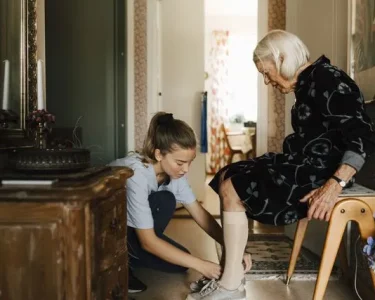As temperatures continue to soar across the United States, extreme heat is emerging as a significant threat to public health, particularly for those with pre-existing Chronic Health Conditions. This trend is placing millions of Americans at greater risk, with severe implications for their health and well-being.
The Escalating Threat of Extreme Heat
Over recent years, the frequency and intensity of heatwaves have surged, with climate change being a primary driver. The National Weather Service has reported a record number of extreme heat events, with temperatures often exceeding safe levels for prolonged periods. This relentless heat has far-reaching consequences, especially for individuals suffering from chronic health conditions such as cardiovascular disease, diabetes, respiratory disorders, and mental health issues.
Vulnerable Populations at Increased Risk
Individuals with chronic health conditions are more susceptible to the detrimental effects of extreme heat. For example, those with cardiovascular diseases may experience increased heart rates and blood pressure due to the body’s need to cool down, leading to potential heart attacks or strokes. Similarly, people with respiratory diseases like asthma or chronic obstructive pulmonary disease (COPD) may struggle to breathe in hot, humid conditions, exacerbating their symptoms and increasing hospital admissions.
Additionally, extreme heat can lead to dehydration, which is particularly dangerous for diabetics, as it can cause blood sugar levels to spike or drop to dangerous levels. The elderly and those living in urban areas, where heat island effects exacerbate temperatures, are particularly at risk.
The Strain on Healthcare Systems
The rising number of heat-related illnesses is placing unprecedented strain on healthcare systems. Hospitals and clinics in affected areas are witnessing a surge in admissions related to heatstroke, dehydration, and exacerbation of chronic conditions. This not only overwhelms medical facilities but also increases healthcare costs and strains resources.
Moreover, the economic impact of extreme heat cannot be ignored. Affected individuals may require time off work to recover from Chronic Health Conditions, leading to lost wages and reduced productivity. For low-income populations, this can exacerbate existing financial difficulties, creating a vicious cycle of health and economic challenges.
Mitigating the Impact of Extreme Heat
To combat the growing threat of extreme heat, public health officials are emphasizing the importance of preparedness and preventive measures. Communities are being urged to establish cooling centers, increase public awareness campaigns, and ensure that vulnerable populations have access to necessary resources.
For individuals with chronic health conditions, it’s crucial to stay hydrated, avoid strenuous activities during peak heat hours, and seek medical advice on managing their conditions in extreme weather. Telemedicine has also become a vital tool, allowing patients to consult healthcare providers without the need to travel in dangerous heat conditions.
The Path Forward
As climate change continues to drive extreme weather patterns, the threat posed by extreme heat is unlikely to diminish. Long-term strategies, including the reduction of greenhouse gas emissions and urban planning that incorporates green spaces and heat mitigation techniques, are essential to protecting public health.
In the meantime, public health initiatives focused on educating at-risk populations, improving healthcare access, and developing community-based cooling solutions are crucial. By addressing the needs of those most vulnerable to extreme heat, we can mitigate its impact and safeguard the health of millions of Americans.
For more in-depth coverage and the latest updates on health and climate change, visit Digital Digest.





